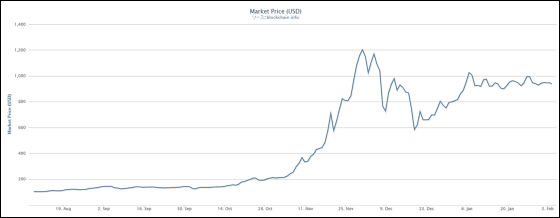What are the attitudes and policies of Bitcoin by government agencies around the world?

ByJason Benjamin
Virtual currency "Bitcoin (bit coin)"Is a fashion epidemic worldwide since 2013 from a novel style that does not have a centralized authority to issue currencies. The speed of penetration too rapidly of bit coins, the stagnation of government agencies around the world and each region is not uniform and the correspondence is also varied. Survey results on legal correspondence to bit coins by such countries and regions around the world are released.
(PDF) Research Report Template - 2014-010233_Law_Library_of_Congress_Bitcoin_jurisdictional_survey.pdf
http://cdn1.sbnation.com/assets/3952017/2014-010233_Law_Library_of_Congress_Bitcoin_jurisdictional_survey.pdf

Law Library of Congress in the USPublished a report summarizing what kind of legal restrictions are imposed on bit coins by 40 countries and regions around the world. Correspondence to the bit coin gathered in the report varies according to each country and region.
◆Positive
There are no countries or regions that recognize bit coins positively and acknowledge it as an official "currency". And there are few countries / regions that show officially a posture that affirms the existence of bit coins. The exception is about Croatia and Cyprus who announced the statement that "central use is not illegal" after consultation on bit coins, Estonia shows a positive attitude to accept as part of population growth policy.

ByBTC Trinkets .com
As the reason why government agencies in each country / region do not accept bit coins as currency, "the absence of currency issuing institutions" which is the biggest feature of bit coin is cited. It seems that government agencies are hesitating to handle bit coins positively, as there is no institution responsible for issuing currency and troubles are left to full self-responsibility.
◆Development of negative legislation
China is listed as a country that officially expresses a negative position against bit coins. In December 2013, the People's Bank of China issued a notice to domestic financial institutions to prohibit financial services using bit coins. An announcement by this government agency triggeredBit coin price plummetsWhat happened was the memory is a new thing happened.

In Brazil, bit coins are not directly regulated, but on October 9, 2013 the "Electronic Currency and Mobile Payment Law (No. 12865)" has been established. This Act establishes guidelines on online payment with electronic money including bit coins and requests service providers to retain and certify payment ability to users and to provide services without satisfying the conditions Since it has penalties against it, it is effectively content to prohibit bit coins.
◆Delay in responding to regulations / correspondence
As in China and Brazil, few countries clarify government policies on bit coins and enact legislation, while government agencies in the majority of countries and regions are still preparing to correspond to bit coins There is a situation that is not in place.
There are countries where there are no bit coin exchange offices in Chile like in Chile, but in many countries and regions there are exchanges where money exchange and trading of bit coins is possible, and in fact the transaction rapidly It is clear in the report that it has increased to. In Australia and India in which a bit coin exchange office was attacked by a hacker and robbed a lot of bit coins, there are no restrictions on bit coins at the moment but it is a policy to regulate in the future It has been reported.

ByBTC Keychain
Furthermore, discussions have been actively made that property taxes such as value added tax should be placed on profits arising from transactions since bit coins are not currencies, and Canada, Finland, Germany, Poland, Israel, It is reported that South Korea and others are considering bit coins subject to taxation.
In addition, Russia, which is considering regulation on the grounds of protecting its own currency, Malta which does not license banking business to financial institutions to be traded, Netherlands which does not allow bit coins as electronic money, government of many countries / regions The agency sees bit coins negatively and is anticipated to regulate in the future.
As for correspondence to Japan's bit coin, when the Bank of Japan governor Tohru Hirohiko was asked about a bit coin at a press conference place, "I am very much interested. "And it is known that it is under investigation and research at the Bank of Japan Financial Research Institute, but it remains unclear as to which position it is negative or affirmative.
Related Posts:
in Note, Posted by darkhorse_log







